Talk to a peer
Talk to a peer
Talk to a peer
Speaking to a peer can be a source of comfort and support when facing prostate cancer.
Talking to someone who “has been there”
The announcement of a diagnosis of prostate cancer can upset your existence and that of your loved ones. We know that in difficult times, it is comforting to be able to talk to someone who has already gone through a similar experience.
Through our telephone pairing service, whether you are diagnosed yourself or a friend, you can be put in contact with someone who has already overcome the same challenge.
In confidence, you will be able to share your experiences, express your emotions, discuss the impact of the illness on your life, and receive advice and encouragement from a volunteer who has gone through the same thing.
Free and confidential, anywhere in Quebec: 1 855 899-2873
How can this service help me?
Many users of this service say that it has helped them better understand what to expect throughout their experience with cancer, either their own or that of a loved one. Consequently, it has helped them be more optimistic and less anxious, and better cope with difficulties.
What should I expect?
This is a confidential telephone support service tailored to your needs and preferences. Matching with a volunteer is done based on several criteria, such as cancer type, gender, language, and lifestyle.
How do I sign up?
This service is easily accessible from anywhere in Quebec. Call 1-855-899-2873, send us an email at info@procure.ca, or request it from one of our nurses during a phone intervention. A member of our staff will contact you.
Who can use this service?
Our telephone matching service is available to individuals with cancer and caregivers aged 18 and over. It may happen that your needs exceed what our volunteers can offer. If that’s the case, we’ll suggest other services that may help you. You don’t have to face cancer alone.
You have been touched by cancer and would like to help someone currently going through this experience? Volunteer by contacting Marie-Christine Beauchemin at 1-855-899-2873 or at info@procure.ca. Check out the phone pairing volunteer profiles to see if you are a good candidate and take the test to see if you have what it takes to be a listener. Source: Association des centres d’écoute téléphonique du Québec.
Volunteer profile for telephone pairing
Prerequisites:
- Have been diagnosed with prostate cancer
- Have undergone treatment for at least one year
- Have the ability to listen
- Have the desire to help, support and give hope in complete confidentiality while respecting the differences peculiar to each person
- Have the ability to easily communicate over the telephone
Expectation of PROCURE:
- Availability for an interview with the telephone pairing coordinator
- Availability for personalized training and individual support
- Compliance with the organization’s guidelines and code of ethics
- Confidentiality of telephone pairing exchanges.
Respect for the life choices of a person is a plus for listening, even if I am convinced that he or she is wrong.
TRUE. The challenge of listening involves respecting the person whatever their life choices. Active listening consists in focusing on the person by letting go of our own presuppositions or values, by an empty slate approach. When confronted with ideas or values which do not match our own, if we find it impossible to temporarily ignore or set them aside, referring the person to someone who will be better able to respond to their needs would be a wise move.
When I am listening to a person, it is best to reduce those periods of silence as much as possible.
FALSE. Those periods of silence are part of the communication and are important moments. Silence can be eloquent and does not arrive by chance. The person is, perhaps, preparing to reveal something important. We can let our presence be felt: “I’m here!,” “Are you alright?,” but without forcing the issue. Silence is often perceived or experienced as embarrassing. As a support person, being at ease with those periods of silence can be another challenge.
The more I sympathsize with the person when I am listening, the more I am able to enter his or her emotional world.
FALSE. Contrary to empathy, sympathy is an interior attitude through which we experience the same feelings as another person about the same situation but without detachment. Empathy consists in entering the other’s world and feelings, accepting the intensity of the emotion they are experiencing and stepping, for a moment, into their shoes without, however, being overwhelmed by it all.
The better I know someone, the more I am capable of truly listening.
FALSE. Knowing a person very well has not proven to be a necessary criterion for being a good listener. It is only necessary to be attentive to what they are sharing in the present moment. At times, it may even be more difficult to really listen to a person we know well because of the risk of becoming subjective and emotional.
Finishing someone’s sentence is a good way to let them feel that I understand.
FALSE. That does not respect his or her rhythm and may harm their willingness to open up. Perhaps they are about to reveal something important to us and by interrupting, we might upset them.
Pitying a person is a good way to let them feel I understand them.
FALSE. Pitying someone reinforces their perception that they are a victim and may affect the situation negatively. We can be supportive and encouraging without showing pity. Pity shows the person that we don’t have confidence in their abilities, that we see their situation as hopeless.
Women have, by nature, a better ability to listen than men.
FALSE. Believing this is wrong, since active listening has nothing to do with gender and is certainly not innate! Listening to someone who needs help is an art and can be learned. While we may have listening skills, we must develop them, regardless of gender.
When I am listening to a person, I must consider my own boundaries.
TRUE. It is important to listen and to set our boundaries. If we do not, we risk fatigue and we are not entirely in sync with ourselves or with the other person. Respecting others begins with respecting ourselves. For example, if a friend phones you because she needs to be listened to and you have an appointment in 30 minutes, you should tell her you have 15 minutes to listen, and beyond that, you won’t be able to fully concentrate because you will be preoccupied by your plans.
When I listen to someone, it helps clarify issues if he or she asks me how I solved a similar difficulty.
FALSE. Naturally and in good faith, we often feel led to give advice thinking it will help; however, what is good for us will not necessarily be good for another person. Each person has his or her own potential and our role is to encourage the person to become aware of his or her own tools, to draw on his or her own baggage and previous experiences.
Certain people are not capable of making choices in life; for them it is preferable to give them insightful advice so that they are less likely to sink further under the weight of their own difficulties.
FALSE. Each individual has their own strengths and potential. The role of the listener is to assist the person to find solutions that suit them by mirroring to them their own emotions, by reformulating for them what they are trying to express while respecting their rhythm. However, in a moment of suicide crisis, we must be more directive and ensure that the person has all the necessary resources.
Other pages that might interest you
Additional Information - Support for you
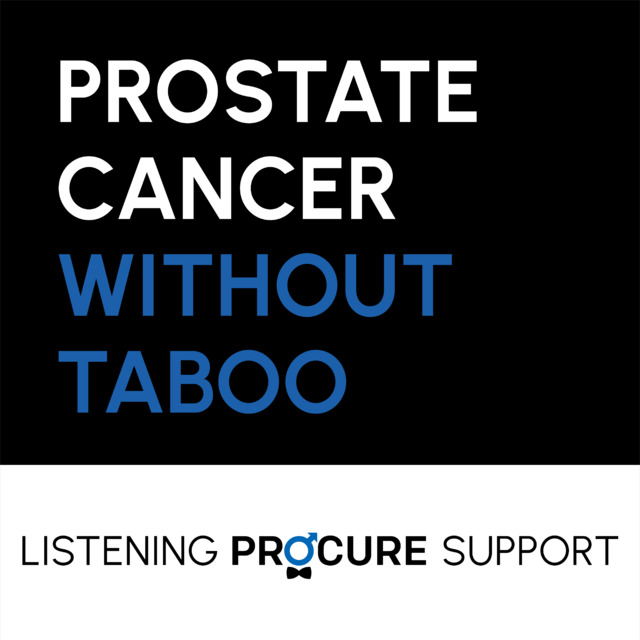
Urologist’s advice: Treatments and information on prostate cancer
Learn more about the role of the urologist and the importance for a patient to gather adequate information after receiving a prostate cancer diagnosis.
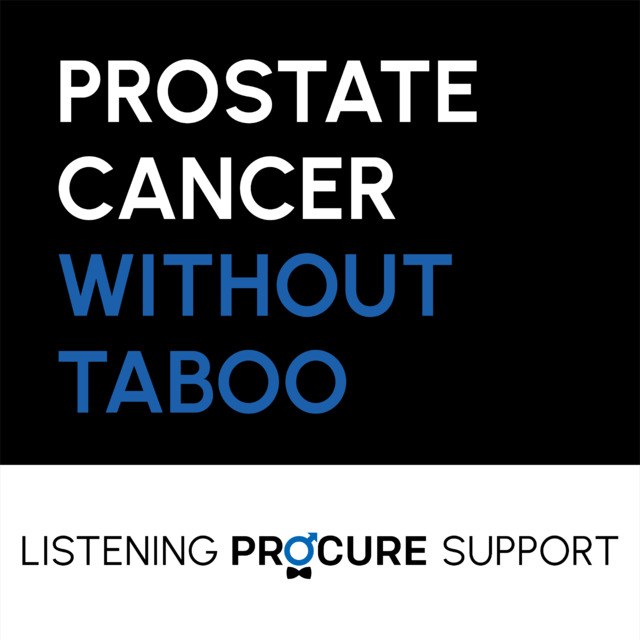
How I coped with prostate cancer
A man with prostate cancer shares the challenges of his cancer experience.
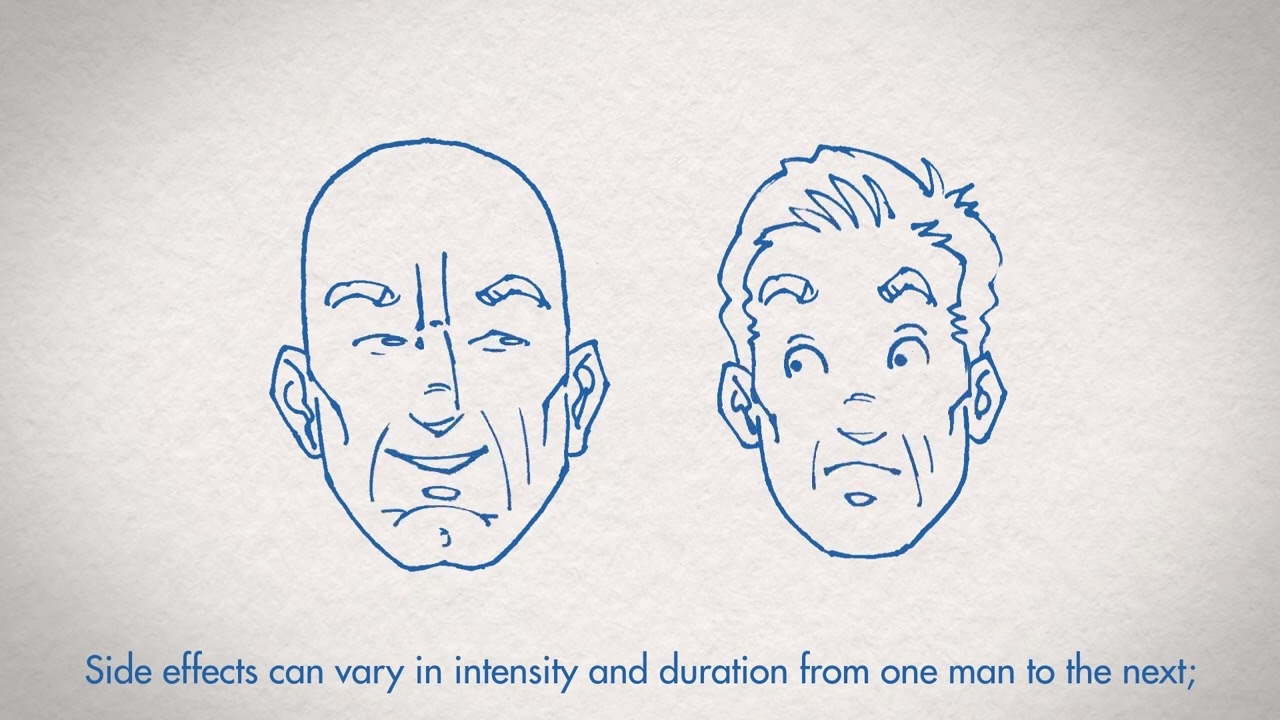
Your role as a patient
You’ve been diagnosed with prostate cancer? Your role is as important as that of your medical team.

Diagnosis and treatment
Recently diagnosed with cancer? Educate yourself to fully understand your situation.
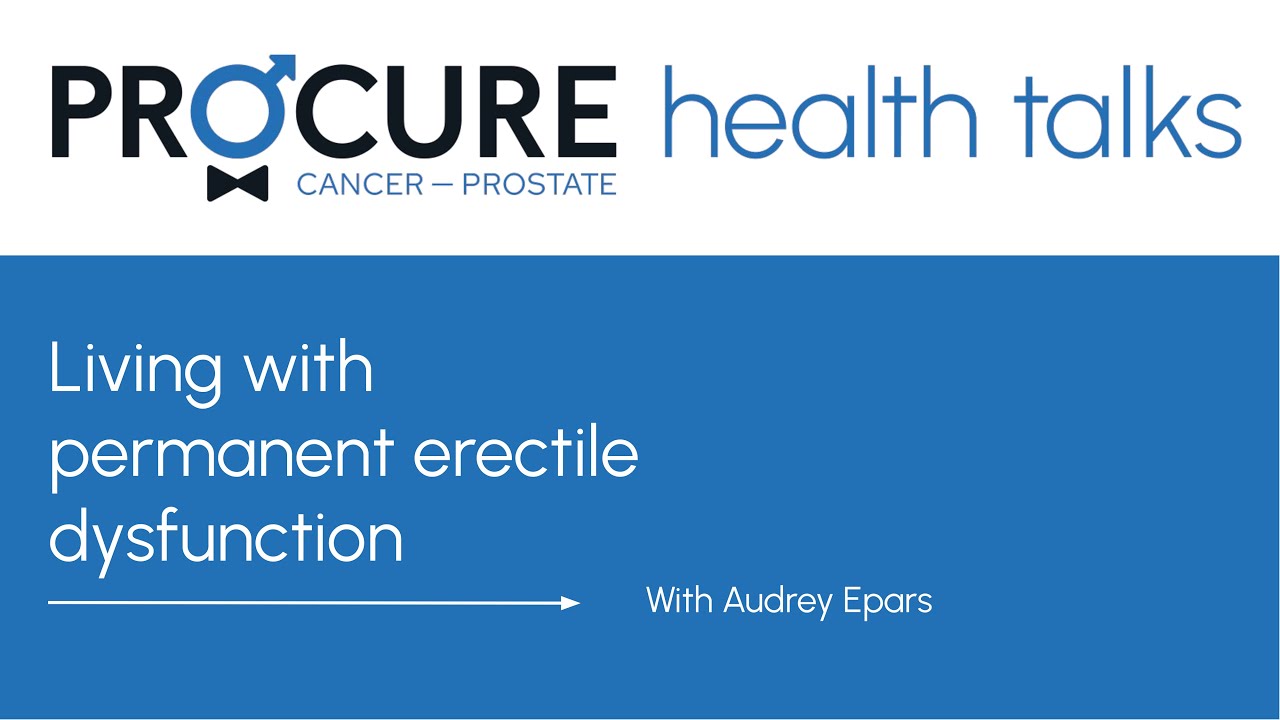
Living with permanent erectile dysfunction
Managing permanent ED after prostate cancer is delicate. Discover strategies to cope with it.
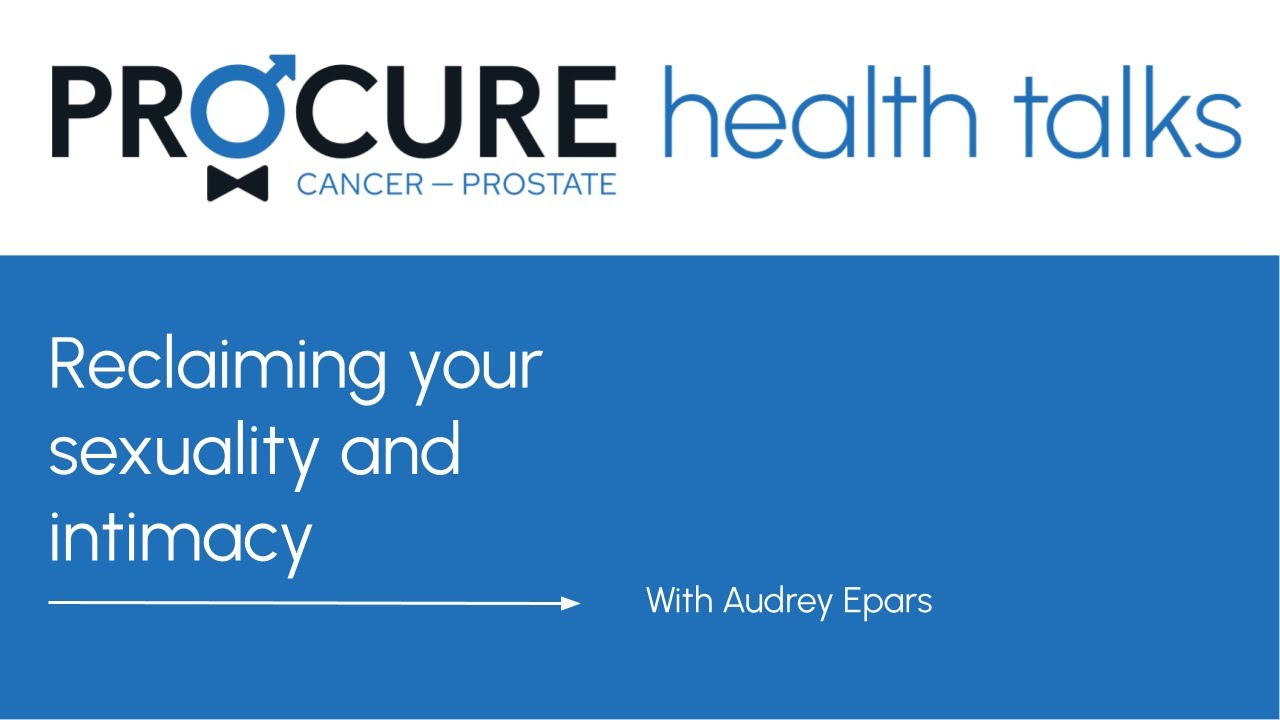
Temporary erectile dysfonction due to treatement
Watch this webinar for advice on regaining your sexuality and redefining intimacy and self-image after prostate cancer treatment.
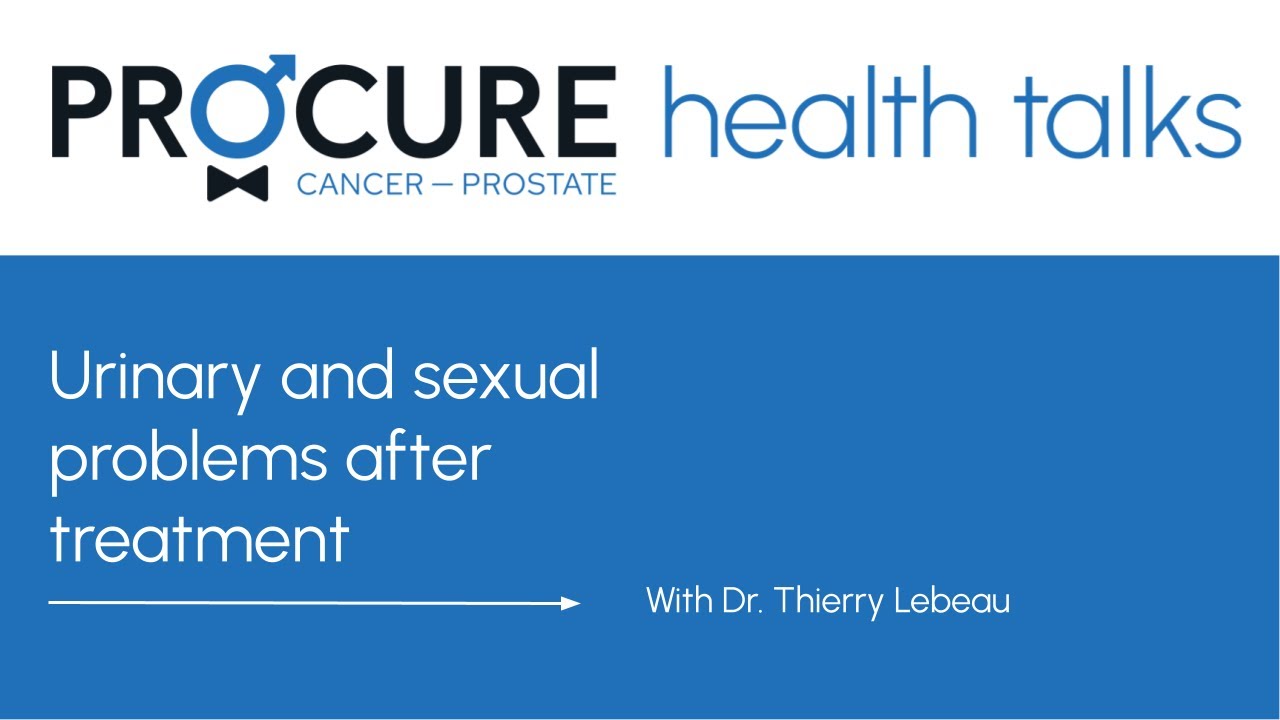
Urinary and sexual problems after treatment
Prostate cancer treatments can lead to side effects, such as erectile dysfunction and urinary incontinence, which vary in intensity and duration.
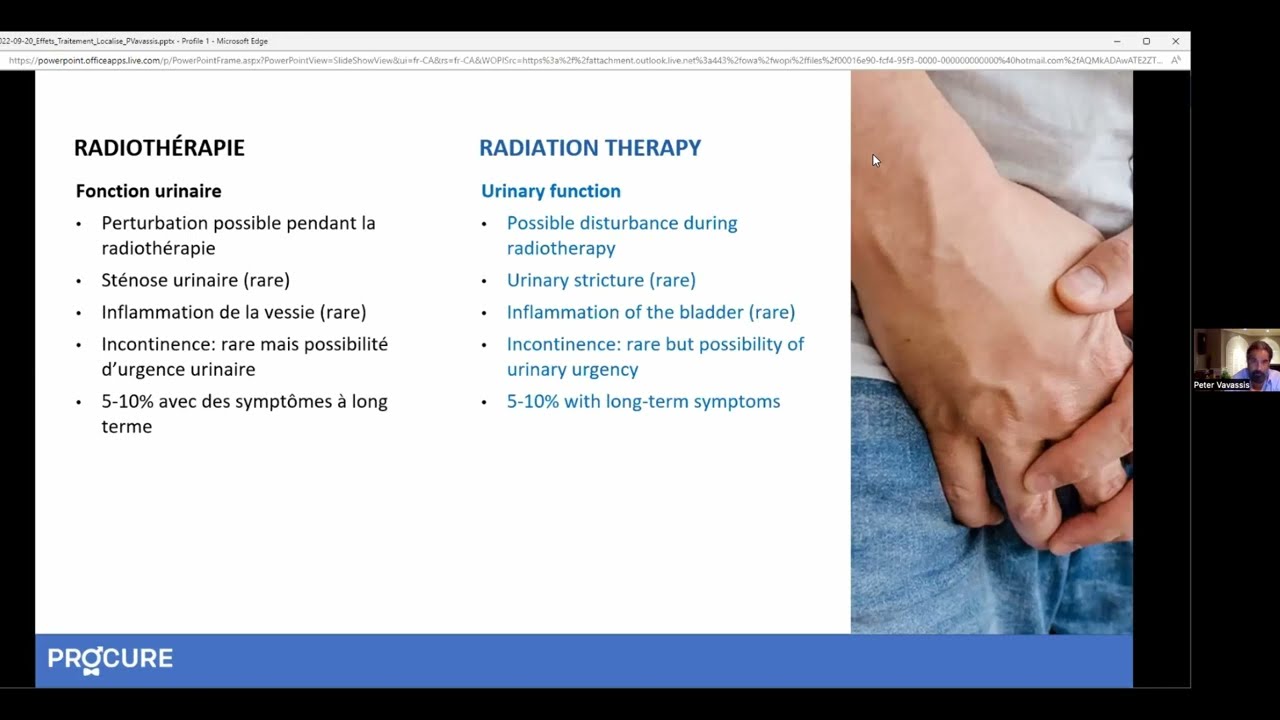
Urinary, sexual or intestinal problems
This webinar offers guidance on managing urinary, erectile, and intestinal functions after prostate cancer treatment.

Living Fully, Drinking Moderately
Benefits of Drinking Less and Flavourful Recipes to Guide You Are you aiming for a healthy start to the year by reducing or completely abstaining from alcohol? It can be challenging, especially when many of our social activities revolve around drinking, such as “Happy Hours” or going to a bar with friends for a sporting […]

Rediscovering Well-being After Treatments
After completing treatments, people often feel a mix of concern and relief. The main focus during this transition is rediscovering well-being.

Do you have a curved penis?
Is your penis curved? Does it curve to the left, right, upward, or downward? You have a curved penis and you or your partner want to know why?

Orgasm without erection?
It is entirely possible for a man to achieve orgasm without an erection or penetration and there are several ways to achieve this.

Simple and easy-to-make healthy recipes
Regardless of the season, why not take the opportunity to cook simple and easy-to-make healthy recipes that are rich in nutrients beneficial for your heart and prostate?!

Fresh start with new habits
We don’t have to wait until January 1st to make a fresh start and adopt new habits. This decision can be made at any time during our life.

Does warm milk help you sleep better?
Can a glass of warm milk help you sleep better in the arms of Morpheus? The Rumor Detector wondered if the research has confirmed this.

I am a little bit diabetic
My doctor informed me that I am a little bit diabetic and that I will have to make important changes to my lifestyle.

Caring for your bones in 5 points
Nicknamed “the silent thief” due to the absence of symptoms, osteoporosis is often only detected at a more advanced stage following a fracture.
Sources and references
Last medical and editorial review: April 2024. See our web page validation committee and our collaborators by clicking here.



